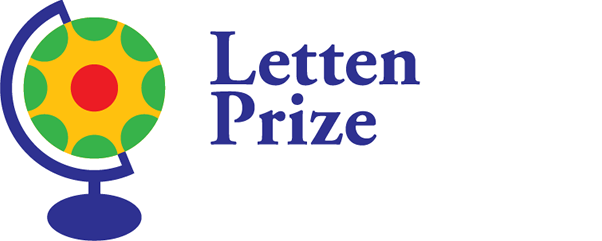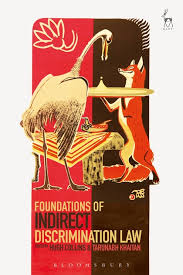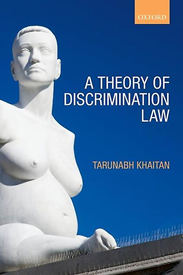Indian Equality Law Programme
The Indian Equality Programme was established by Associate Professor Tarun Khaitan in late 2018. It is funded by the Letten Prize, and encourages capacity-building to support early academics with an interest in Indian equality, anti-discrimination law and/or comparative law.
Featured content
-
Staff
The Indian Equality Law Programme is headed by Associate Professor Tarun Khaitan, and is supported by professional support staff.
View -
Visiting Fellows
The Indian Equality Law Programme funds 2-3 visiting fellows each year to promote capacity-building for early career scholars.
View -
PhD Candidate
The Indian Equality Law Programme funds one PhD candidate for the duration of their studies.
View
About the Indian Equality Law Programme
The Indian Equality Law Programme was created by Associate Professor Tarunabh Khaitan. The Programme is funded by the Letten Prize awarded to Associate Professor Khaitan in 2018. The Indian Equality Law Programme encourages capacity-building to support early academics with an interest in Indian equality, anti-discrimination law and/or comparative law. It particularly encourages participants from traditionally under-represented groups in legal academy. The Programme supports both a PhD Scholarship and a Visiting Fellowship.


About the Letten Prize
The Letten Prize was established by the joint efforts of the Letten Foundation, the Young Academy of Norway and the Centre for Development and the Environment. The Prize is of 2 million Norwegian Krone and is awarded annually. The purpose of the Letten Prize is to recognise young researchers’ contributions to health, development, environment and equality in various aspects of human life. It praises and encourages public awareness of how research can find solutions to global human development issues. In 2018, the Letten Prize was awarded to Associate Professor Tarunabh Khaitan for his ground-breaking and interdisciplinary research into comparative discrimination law. Associate Professor Khaitan’s work combines scholarly excellence with authentic social engagement which exemplifies the Letten Prize’s ambition.

Foundations of Indirect Discrimination Law (2018)
Indirect discrimination (or disparate impact) concerns the application of the same rule to everyone, even though that rule significantly disadvantages one particular group in society. Ever since its recognition by the Supreme Court of the United States in 1971, liberal democracies around the world have grappled with the puzzle that it can sometimes be unfair and wrong to treat everyone equally. The law's regulation of private acts that unintentionally (but disproportionately) harm vulnerable groups has remained extremely controversial, especially in the United States and the United Kingdom. In original essays in this volume, leading scholars of discrimination law from North America and Europe explore the various facets of the law on indirect discrimination, interrogating its foundations, history, legitimacy, purpose, structure, and relationship with other legal concepts. The collection provides the first international work devoted to this vital area of the law that seeks both to prevent unfair treatment and to transform societies.

A Theory of Discrimination Law (2015)
Marrying legal doctrine from five pioneering and conversant jurisdictions with contemporary political philosophy this book provides a general theory of discrimination law. Part I gives a theoretically rigorous account of the identity and scope of discrimination law: what makes a legal norm a norm of discrimination law? What is the architecture of discrimination law? Unlike the approach popular with most textbooks the discussion eschews list-based discussions of protected grounds instead organising the doctrine in a clear thematic structure. This definitional preamble sets the agenda for the next two parts. Part II draws upon the identity and structure of discrimination law to consider what the point of this area of law is. Attention to legal doctrine rules out many answers that ideologically-entrenched writers have offered to this question. The real point of discrimination law this Part argues is to remove abiding pervasive and substantial relative group disadvantage. This objective is best defended on liberal rather than egalitarian grounds. Having considered its overall purpose Part III gives a theoretical account of the duties imposed by discrimination law. A common definition of the antidiscrimination duty accommodates tools as diverse as direct and indirect discrimination harassment and reasonable accommodation. These different tools are shown to share a common normative concern and a single analytical structure. Uniquely in the literature this Part also defends the imposition of these duties only to certain duty-bearers in specified contexts. Finally the conditions under which affirmative action is justified are explained.
The Indian Equality Law Programme Visiting Fellowship promotes capacity-building for early career scholars.
Fellows benefited from participation in a research-intensive environment where they had the privilege of attending academically enriching seminars, workshops and reading groups. This included attending a workshop on public law. Fellows benefited from opportunities to interact with other visiting equality law scholars.
Funding for the Fellowship was provided by the Letten Prize. The 2020 Visiting Fellowships took place at Melbourne Law School, and the 2023 Visiting Fellowships took place at the University of Oxford.
2019 Visiting Fellows
Asian Law Centre
Room 0726, Level 7
Melbourne Law School
185 Pelham Street
The University of Melbourne VIC 3010
Australia
T +61 3 8344 6847
E law-alc@unimelb.edu.au
Academic Lead: Associate Professor Tarun Khaitan
Manager: Ms Kathryn Taylor
Administrative Assistant: Ms Dilara Ozer